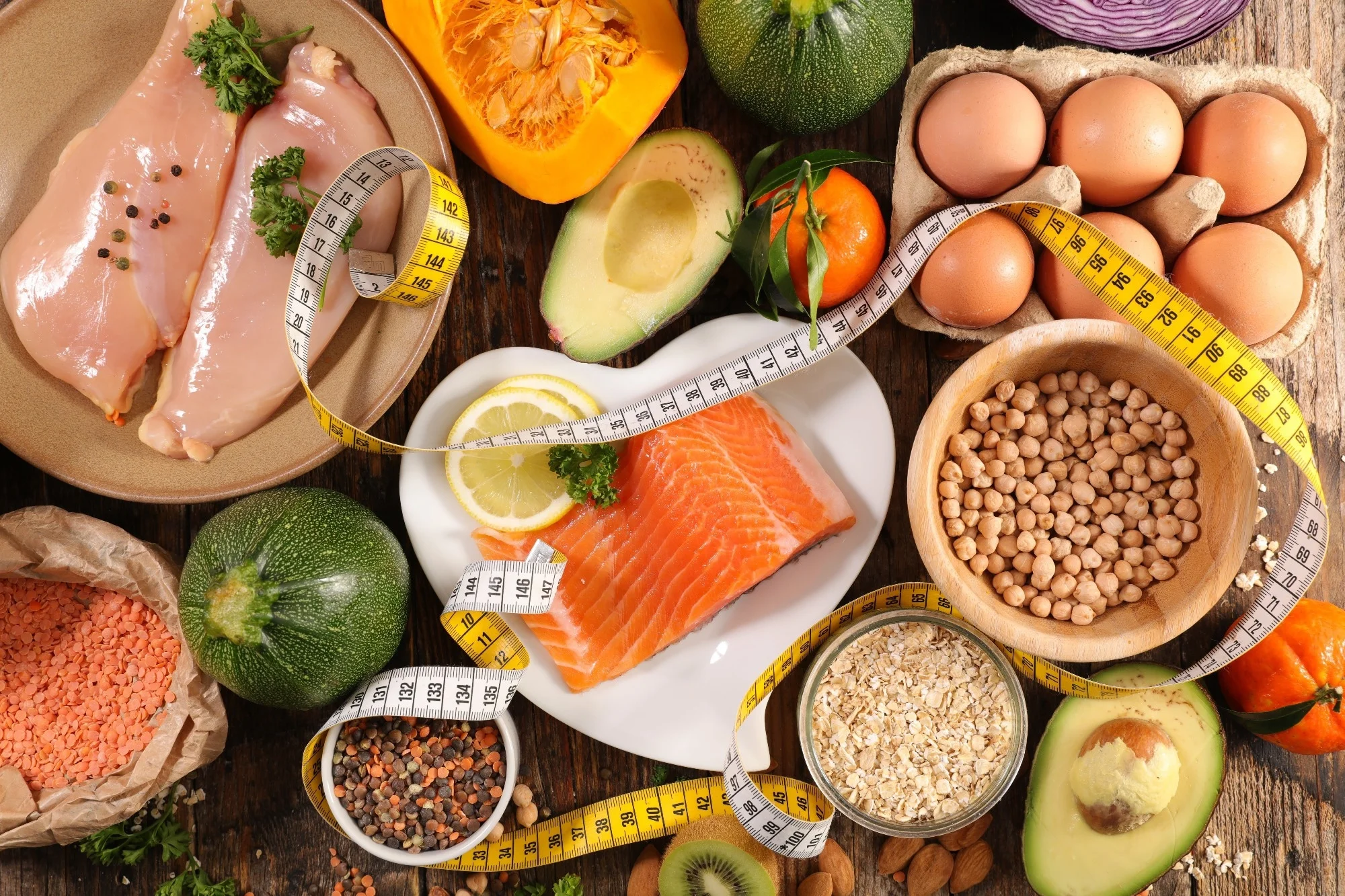
Eating a nutritious and well-balanced diet provides essential nutrients for optimal health and well-being, helping lower the risk of obesity, cardiovascular disease, type 2 diabetes and cancer. Benefits may also include lower weight management costs.
An appropriate diet can support healthy weight loss without restrictive or unsustainable behavior. This article will discuss several key strategies to achieve and sustain an appropriate diet.
Eat a Variety of Foods
An optimal diet is vital to both short- and long-term health. Without it, our bodies cannot get all of the essential nutrients required for proper functioning – leading to fatigue, illness and disease. A diet rich in fruits, vegetables, grains, proteins and dairy is typically considered healthy while being low in saturated fat, trans fat, added sugars and salt content.
The old food pyramid model focused primarily on grains; the U.S. Department of Agriculture “MyPlate” graphic suggests instead filling half your plate with vegetables and fruit, quarter with protein, and the remainder with whole grains. Furthermore, they recommend pairing each meal with calcium-rich beverages like milk or other sources as well as using liquid plant oils instead of tropical or partially hydrogenated fats for optimal results.
Nutritious diets provide energy to keep us active and help prevent weight gain, while contributing to healthier blood pressure and cholesterol levels. Fibre from vegetables and whole grains regulates bowel movements to avoid constipation while simultaneously helping people feel full longer thereby managing hunger more effectively.
Eating a variety of food can also improve mental health. Certain nutrients, like omega-3 fatty acids and vitamins A, C, E and K may aid relaxation and reduce symptoms of depression and stress. Furthermore, eating foods rich in magnesium (like leafy greens and nuts) may aid sleep quality.
Eat a Balanced Meal
Eating well-rounded meals is vital to good health. A well-balanced diet includes foods from all major food groups while limiting processed food, added sugars and salt consumption.
The MyPlate graphic provided by the U.S. Department of Agriculture is an ideal guideline when planning meals and snacks. Half your plate should consist of fruits and vegetables, a quarter with protein sources such as lean meats, poultry eggs or fish and one fifth should consist of whole grains and starches. Select nonstarchy veggies like broccoli, tomatoes, and mushrooms along with plenty of leafy greens – plus lean proteins from lean meats poultry eggs and fish!
Avoid overeating starchy vegetables and carbohydrates, which tend to be high in calories and can contribute to weight gain if consumed alone. Instead, fill a quarter of your plate with whole grains such as brown rice, quinoa or oats as part of a balanced meal that also includes fruit and low-fat dairy products.
No matter if you have allergies or intolerances to certain foods, eating healthily can still enhance the quality of life by raising energy levels, decreasing symptoms of chronic disease and improving mood. Working with a nutritionist to plan out a meal plan that meets all of your nutritional needs while respecting any dietary restrictions is key to finding success with nutrition.
Eat a Snack
Snacking is essential to healthy eating as it helps balance blood sugar, enhance nutrient intake and support gut health. Eating regular snacks throughout the day will give you sustained energy while helping prevent overeating at meals later. Research suggests that snacking more frequently has been associated with greater daily energy consumption; to select healthier, lower calorie snacks (like fruit or whole grain crackers with low-fat cheese), is key.
An ideal healthy snack should consist of protein, fiber and some fat; these types of food take longer to digest and will keep you feeling satisfied for an extended period of time. Consider enjoying fruit with nuts or carrots with hummus as well as whole-wheat crackers topped with peanut butter instead of high-fat options like chips.
An effective diet may seem restrictive and daunting at first glance. But small changes over time will add up and create big impacts. Instead of stocking your pantry with cookies and candy, switch it out for fruit or yogurt instead. Replace soda with seltzer water or unsweetened iced tea; and try eating at least some vegetables or fruit at each meal and snack – not forgetting drinking plenty of water too – until your healthy, balanced diet gives you more energy to get through each day! With these guidelines in place you’re on track for achieving a healthy, balanced diet while giving yourself more energy to power through each day!
Drink Water
Water is an ideal beverage to add to a diet rich in nutrition. Calorie-free and aiding digestion, water provides essential nutrients that may assist with weight loss by suppressing appetite and helping eliminate unnecessary snacking. Sugary drinks high in calories such as sodas, frozen juices and coffees, as well as alcoholic beverages should be avoided in favor of water for weight loss purposes.
Drinking beverages containing added sugar may lead to an increase in glycemic load, which increases blood glucose and insulin levels and contributes to weight gain as well as health complications. Even drinks labeled as “sugar-free” or containing low-calorie sweeteners like sucralose, aspartame or stevia may contribute to weight gain.
One older study demonstrated that those drinking room temperature water, saline solution or sucrose solution experienced similar resting energy expenditure results; however, cooling the water increased its calorie burn compared to the other beverages due to having to expend extra energy warming it up before drinking it.
Start drinking two cups of water each day, adding fruit or herbs for flavor. Switch to more whole-food, less packaged and processed options and preparing meals at home as part of a balanced lifestyle for long-term weight control and optimal health.




